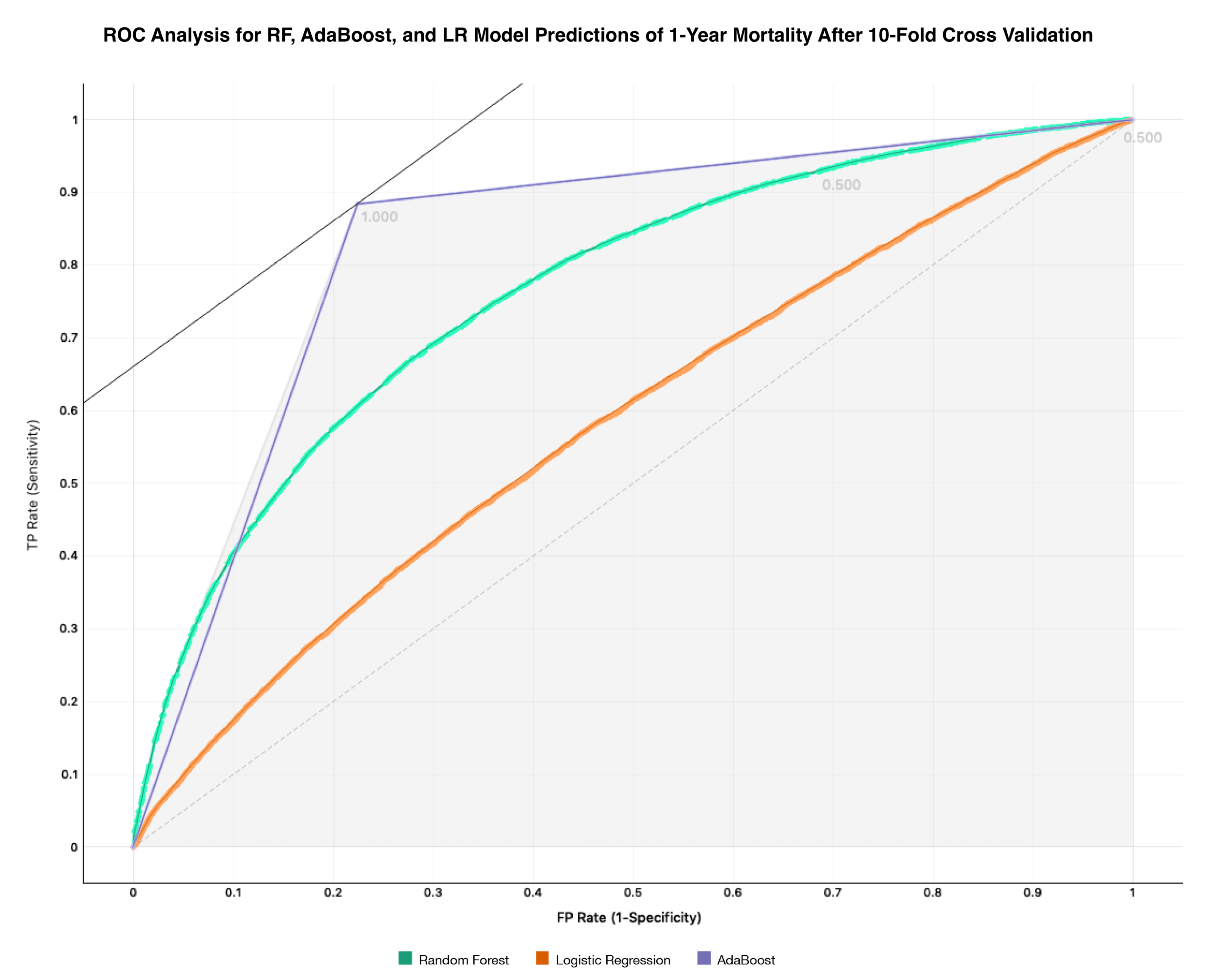Machine Learning Model Outperforms Linear Regression Models for 1- and 3-Year Post-Transplant Survival: Is This the Future?
1Baylor College of Medicine, Houston, TX, 2Interdisciplinary Surgical Technology and Innovation Center, Baylor College of Medicine, Houston, TX, 3InformAI, Houston, TX
Meeting: 2020 American Transplant Congress
Abstract number: B-312
Keywords: Area-under-curve (AUC)
Session Information
Session Name: Poster Session B: Biomarkers, Immune Assessment and Clinical Outcomes
Session Type: Poster Session
Date: Saturday, May 30, 2020
Session Time: 3:15pm-4:00pm
 Presentation Time: 3:30pm-4:00pm
Presentation Time: 3:30pm-4:00pm
Location: Virtual
*Purpose: Modeling is essential for regulatory oversight and risk stratification in clinical practice. Our hypothesis was that machine learning models would be superior to linear/logistic regression models in predicting 1- and 3-year mortality after liver transplantation.
*Methods: We tested this hypothesis by creating two machine learning predictive models, a Random Forest (RF) decision tree model and an AdaBoost ensemble-based model. We then compared their predictive capabilities to the commonly used linear/logistic regression (LR) method. We randomly selected 30,000 adult patients from the United Network for Organ Sharing database, including only those who underwent one orthotopic liver transplantation. To perform cross-validation, we randomly divided these 30,000 patients into training (60%) and test (40%) sets 5 times. All pre-transplantation parameters which would be known to a clinician at the time of transplant offer were included, totaling 342 features. We repeatedly trained a RF, an AdaBoost and a control LR model on the training data and tested the predictive power of these models on their respective test sets. We measured the average 5-fold cross-validated performance of these three models with classification accuracy, precision, recall, and area under the receiver operator curve (AUC) metrics.
*Results: We found that for both 1- and 3-year mortality prediction, the RF and AdaBoost models proved superior to LR methods. For the prediction of 1-year post-transplantation survival, the models performed against the test datasets as follows regarding average classification accuracy (CA) and AUC: (1) the AdaBoost model with CA = 0.848 and an AUC = 0.830, (2) the RF model with CA = 0.72 and AUC = 0.763, and (3) the LR model at CA = 0.667 and AUC = 0.582 respectively. Similarly, in modeling 3-year mortality, the models performed as follows: AdaBoost (0.832 CA and 0.818 AUC), RF model (CA = 0.705 and AUC = 0.721) and the LR model (CA = 0.666 and AUC = 0.579), respectively.
*Conclusions: The machine learning methods of RF and AdaBoost produced superior models for post-transplant survival compared to logistic regression, with the strongest performance form the AdaBoost model. This is likely due to the ability of these modeling techniques to find non-linear associations in the datasets. Based on these results, machine learning methods should be considered for incorporation into future transplant outcome models.
To cite this abstract in AMA style:
Pettit RW, Corr SJ, Havelka J, Rana A. Machine Learning Model Outperforms Linear Regression Models for 1- and 3-Year Post-Transplant Survival: Is This the Future? [abstract]. Am J Transplant. 2020; 20 (suppl 3). https://atcmeetingabstracts.com/abstract/machine-learning-model-outperforms-linear-regression-models-for-1-and-3-year-post-transplant-survival-is-this-the-future/. Accessed February 25, 2026.« Back to 2020 American Transplant Congress

